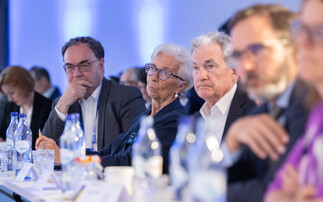Brent crude shot up to its highest level in over two years on Monday after Turkish President Recep Erdogan threatened to cut off the pipeline that brings oil from northern Iraq to markets.
As a result, the price of Brent Crude rose 3.8% to close at $59 a barrel, its highest level since July 2015, but has since continued to rise 0.3% to $59.2 a barrel in early morning trading.
Erdogan's threat to shut off the main pipeline in northern Iraq comes as the region held an independence referendum to see whether it should become an autonomous Kurdish region, something the Turkish President strongly opposes.
The pipeline, which Erdogan has threatened to "close", usually pumps between 500,000 and 600,000 barrels a day.
According to the Financial Times, Kurdish exports have risen strongly since 2014, which has allowed the Kurdistan Regional Government to plan for independence from Iraq, despite resistance from the US, Turkey and Iran.
Furthermore, oil prices have gained over 30% since June as global inventories have tightened following expanding demand from industrialised countries as well as emerging markets for the first time in nearly a decade.
What is the outlook for oil as prices slip into bear market territory?
The price of Brent Crude has risen from over $55 a barrel last week as OPEC and non-OPEC producers both said the market was rebalancing amid strong global demand.
West Texas Intermediate (WTI) rose 3.1% to $52.2 a barrel, its highest level since April, and 0.11% to $52.3 a barrel in early morning trading.
Demand from China has been a crucial driver of the return to above $55 a barrel prices as the world's second largest economy builds its strategic petroleum reserve.
Mohammed Barkindo, OPEC's secretary-general, said: "So for the foreseeable future, we can count on the Asia Pacific to be the primary outlet for OPEC and Middle Eastern export barrels," according to the FT.
Jordan Hiscott, chief trader at ayondo markets, said: "Geopolitics has been the latest catalyst for the increase, specifically the threat from Turkey, in light of the recent Kurdish referendum on independence, to halt supply to Europe from the pipeline that carries oil exports from Kurdistan.
"With global oil inventories now noticeably lower, the recent OPEC production cuts, albeit slowly, seem also to be having an upward lift to prices.
"Whether this momentum can continue is another factor. The next significant level of resistance comes in when WTI is around $55 a barrel, which is likely to be closely watched by investors and traders."














